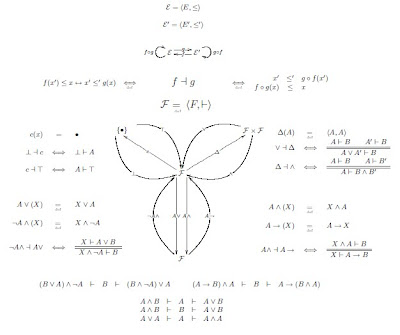First of all, when i say "proved", what I will mean is "proved with the aid of the whole math." Now then: two plus two is four as you well know. And of course
it can be proved that two plus two is four (proved, that is with the aid of the whole of math, as I said, though in the case of two plus two, of course we do not need the
whole of math to prove that it is four). And, as may not be quiet so clear, it can be proved that it can be proved that two plus two is four, as well.
And it can be proved that it can be proved that it can be proved that two plus two is four. And so on. In fact, if a claim can be proved, then it can be proved that the claim can be proved. And
that too can be proved.
Now: two plus two is not five. And it can be proved that two plus two is not five. And it can be proved that it can be proved that two plus two is not five, and so on.
Thus: it can be proved that two plus two is not five. Can it be proved as well that two plus two
is five? It would be a real blow to math, to say the least, if it could. If it could be proved that two
plus two is five, then it could be proved that five is not five, and then there would be
noclaim that could not be proved, and math would be a lot of bunk.
So, we now want to ask, can it be
proved that it can't be proved that two plus two is five? Here's the shock: no, it can't. Or to hedge a bit:
if it can be proved that it can't be proved that two plus two is five,
then it can be proved as well that two plus two is five, and math is a lot of bunk. In fact, if math is not a lot of bunk, then no claim of the form "claim
X can't be proved " can be proved.
So if math is not a lot of bunk, then, though it can't be proved that two plus two is five, it can't be proved
that it can't be proved that two plus two is five.
By the way, in case you'd like to know: yes, it
can be proved that
if it can be proved that it can't be proved that two plus two is five, then it can be proved that two plus two is five.
George Boolos: Gödel's Second Incompleteness Theorem Explained in Words of One Syllable in: Logic, Logic, and LogicHarvard University Press Cambridge, MassachusettsLondon, England1998




